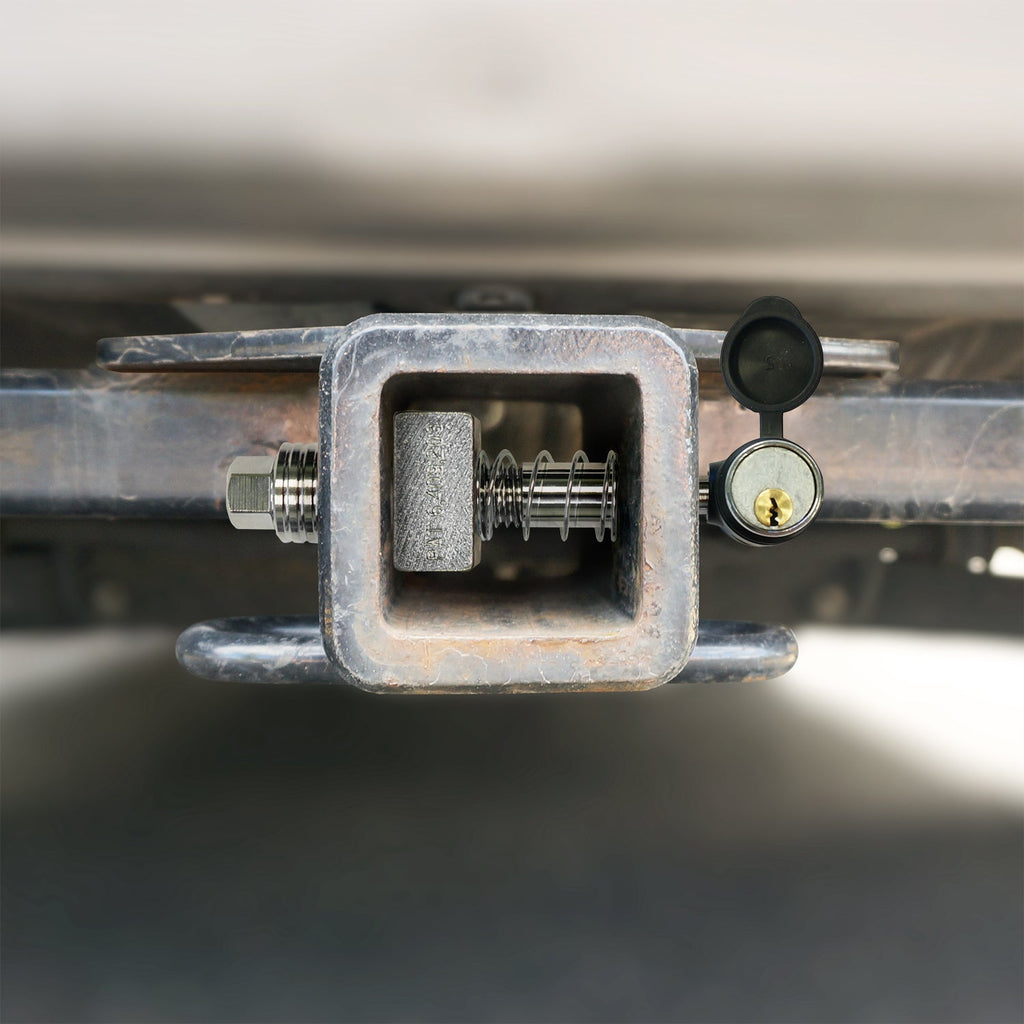Author: Amanda Kennedy
Published: August 30, 2014
Updated: March 05, 2025


If you are in the market for a new trailer, you probably know if your vehicle has a hitch receiver or "hitch" installed on it, but do you know what you're capable of towing with it? All of Let’s Go Aero's trailers come standard with a 2-inch coupler and can be towed by ANY class (1 – 5) receiver style hitch. The only requirement for towing a trailer from Let’s Go Aero is to have a vehicle with a hitch and wiring for a four-flat connector plug, and a ball mount with a 2-inch ball.
Before diving into the specifics of hitch classes, it’s essential to understand how to measure your hitch opening to confirm its size. The hitch size is determined by measuring the width and height of the receiver opening. For example, a 2-inch hitch receiver will measure exactly 2 inches across the opening. Always check with your hitch manufacturer to confirm your vehicle's towing capacities and ensure that you are not exceeding the recommended weight limits.

| Hitch Info & Rating | Common Vehicles | Common Hauling Scenarios | Compatible Let's Go Aero Products |
|---|---|---|---|
|
Class 1 Towing: <2000 lbs Tongue: <200 lbs Size: 1 ¼” sq |
Compact cars, sedans, small SUVs |
Small utility trailers, bike racks, cargo carriers |
|
|
Class 2 Towing: <3500 lbs Tongue: <350 lbs Size: 1 ¼” & 2" sq |
Medium SUVs & Crossovers | Small boats, motorcycles, small campers |
|
|
Class 3 Towing: <5000 lbs Tongue: <500 lbs Size: 2” sq |
medium to large SUV, especially large SUV | Mid-sized trailers, larger boats, small RVs |
|
|
Class 4 Towing: <12000 lbs Tongue: <1000 lbs Size: 2” & 2.5" sq |
Full-sized SUVs, larger pickup trucks, heavy-duty vans |
Large RVs, car haulers, large boats | |
|
Class 5 Towing: <20000 lbs Tongue: <1200 lbs Size: 2”, 2.5" & 3" sq |
Heavy-duty trucks, commercial vehicles | Commercial trailers, large fifth-wheel RVs |
Hitch Classes
Class 1 (Small Vehicles)
Class 2
Class 3 (Trucks, Vans, SUVs)
Class 4 (Large Trucks & Vans)
Class 5 (Heavy Duty Applications)

Factors to Consider When Choosing a Hitch Class
If your vehicle doesn't already have a hitch and you are looking to have one installed, it's crucial to choose the right hitch class. Consider the weight of the load you plan to tow, the type of vehicle you have, and the hitch's compatibility with your vehicle. Ensure that your vehicle's towing capacity matches or exceeds the trailer's weight to avoid any safety issues. Additionally, think about the type of hitch accessories (cargo carriers, bike racks etc) you plan to use, as not all accessories are compatible with every hitch class due to tongue weight restrictions.

Common Hauling Scenarios for Each Hitch Class
Before choosing a hitch, it’s helpful to understand the typical vehicles and hauling scenarios associated with each hitch class. Here’s a breakdown of common hauling scenarios for each hitch class, along with the types of vehicles they are typically installed on or found on.
Class 1
Class 2
Class 3
Class 4
Class 5

Where to Get Your Hitch Installed
For most vehicles, having a hitch professionally installed is the safest and most reliable option. Local trailer companies are a great choice as they have the expertise and experience to ensure your hitch is installed correctly. U-Haul is another popular option, with locations across the country offering convenient and professional installation services.
However, if you’re handy and have the proper tools, some hitches can be installed at home. Many hitches come with installation kits that include all necessary hardware and instructions. Before attempting a DIY installation, make sure your vehicle is compatible and can accommodate a hitch without professional help. Always prioritize safety, and if you're unsure about any part of the installation process, consult with a professional to avoid potential hazards.
Whether you opt for professional installation or decide to tackle the project yourself, ensuring your hitch is installed correctly is essential for safe and efficient towing.
Safety Tips for Hauling for all Hitch Classes
Conclusion
Understanding tow hitch classification is crucial for safe and efficient towing. By choosing the right hitch class for your needs and following proper safety guidelines, you can ensure a smooth and trouble-free towing experience. Whether you’re hauling bikes for a weekend getaway or transporting heavy-duty equipment, knowing your hitch’s capabilities will help you get the job done safely and effectively.